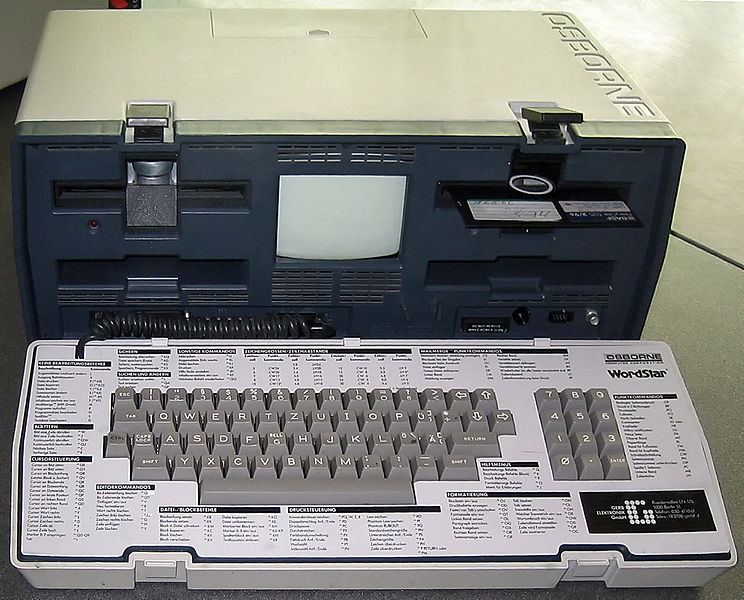Break up the Postal AT&T

The Hi-Lites (yellow box) and the Muskegon Chronicle (white box) both provide boxes, because they can’t rely on the other being there, and they are barred by the government from using the box paid for and installed by the homeowner specifically for the purpose of receiving paper deliveries.
On Facebook recently I saw a “Save the Post Office” link that read, “Sign the petition: Don’t let Congress end door-to-door mail service” and added the comment “This would be horrible! How would elderly people get their mail?”
The answer, of course, is through door-to-door mail service. The proposed bill requires the USPS to continue door-to-door delivery at no cost in cases of physical hardship. See page 9, lines 8 through 18.
The bill doesn’t end door-to-door delivery; it allows the Post Office to choose where to provide it, as long as they provide door-to-door delivery to people who need it.
Further, though, we have no idea what great things would replace the United States Postal Service if we just let great things happen. The law currently bans any normal letter service except through the USPS, and it also bans access to mailboxes by anyone except the USPS. The USPS has its own police force, the United States Postal Inspection Service, to enforce the USPS monopoly in letter mail.
The USPS ruthlessly suppresses any competition, and rather than embrace the process that gave us innovations like overnight delivery, we cower in fear of losing the wonders of the USPS. We fear something that we won’t lose, and can’t know the wonders we’ll gain through competition.
The same arguments against letting businesses compete with the USPS were used to argue against letting businesses compete with AT&T: the government has to ban competitors because competitors will only skim the cream of lucrative markets, abandoning the poor. A precious national resource will be destroyed. They already provide the cheapest service possible. There is no way competition can reduce prices. It will only increase prices by fragmenting the market.

The iPhone from the alternative universe where AT&T kept their government monopoly. If your car battery runs down this iPhone has a built-in jump-starter. (Image courtesy Johann H. Addicks, CC-BY-NC-ND 3.0)
In fact, after ending AT&T’s government-enforced monopoly we have far better telephone service available for even less money than in the days of the monopoly. Service is so inexpensive that even the poor have access to phone technology unthinkable before opening telephone service to competition.
Anyone in America who wants one can get a tiny phone to carry easily outside their home, paying no monthly fees, paying only for what they need, and at lower prices than before the government monopoly ended. Even the most basic phones combine voice, voice mail, and text messaging.
Certainly we have lost things. It is increasingly difficult to find a pay phone. But that’s because no one is looking. Everyone has a cell phone. And it’s increasingly common to drop land lines. Because something better has arrived. Something foreseen only in science fiction, and even then only dimly caught.
What wonders await if we let the same thing happen with letter delivery? What would the people who created Google Voice do if they were allowed to get into physical mail delivery, for example? We don’t know. But we do know it will be created in competition to win us as customers.
- Hi-Lites Shoppers’ Guide
- “Serving the Newaygo County, Michigan Area Since 1947”
- Microsoft Cites AT&T to Fight Breakup: Joel Brinkley at The New York Times
- “The record shows that in the late 1970’s and early 1980’s, AT&T mounted aggressive legal arguments against the government’s proposed breakup plan. Innovation would be stifled, research stunted and a precious national resource—the world’s best telephone system—would be destroyed.”
- Postal Reform Act of 2013 at United States House of Representatives (PDF)
- “To restore the financial solvency of the United States Postal Service and to ensure the efficient and affordable nation- wide delivery of mail.”
- U.S. Department of Justice vs. AT&T: Brad Reed
- “AT&T provides the very cheapest service possible,” Carl Glick, a telecom analyst, told Time Magazine. “Justice gets so wrapped up in its rhetoric about the advantages of competition that it loses sight of the economic implications of its moves.”
- What Killed Ma Bell?: Melvin D. Barger
- “The mistake, which both the public and Bell accepted, was in believing that anybody should be granted a business monopoly enforceable by law.”
More AT&T
- Natural monopolies: a 20-minute call for $8.83
- “A 20-minute call anywhere in the country will cost me only $3.33? What’s the catch?” The catch is that those are still outrageous monopolistic prices.
More government monopolies
- Deadly complications of government bureaucracy
- Government monopolies, whether government agencies or de facto government agencies in the form of government-sponsored enterprises, aren’t rewarded by getting product to the people who need it. They’re rewarded by kissing up the bureaucratic chain.
- COVID Lessons: How can we respond to a disease before it spreads?
- How can we make ourselves less vulnerable to sudden epidemics, before they become epidemics, and without causing epidemic levels of deaths?
- COVID Lessons: Government Monopolies are Still Monopolies
- Our response to COVID-19 was almost designed to make it worse. We shut down the nimble small businesses that could respond quickly, and relied almost solely on large corporations and the government monopolies that failed us, because they are monopolies.
- A free market in union representation
- Every monopoly is said to be special, that this monopoly is necessary. And yet every time, getting rid of the monopoly improves service, quality, and price. There is no reason for unions to be any different.
- Why is it so difficult to hold schools accountable?
- Simulating accountability in education has the same problems as simulating accountability in health care or any other monopoly. Tests and grades and paperwork are never as effective as choice.
- Two more pages with the topic government monopolies, and other related pages
More United States Postal Service
- The Post Office is not designed for universal mail-in ballots
- Universal mail-in ballots introduce serious problems that the United States Postal Service is not designed to handle. To be sure that all votes are counted, we should continue accepting ballots for 100 years.
- The Radio Shack Postal Service
- What if Radio Shack had been granted a monopoly on computers in 1981? They’d probably look a lot like the United States Postal Service.
